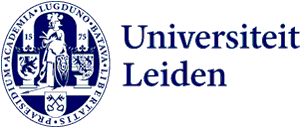‘It doesn’t feel like work’: what it’s like to be a mentor for Pre-University College
Guiding high school students as a mentor at Pre-University College: what is that like? And what does it all entail? As part of the 20th anniversary of PRE-College Leiden, we asked two experienced PRE-mentors about their job - and what makes their work so meaningful. ‘You really see them grow.’
In the hall of the Old Observatory, Daniël Bartelds (41) approaches his interviewer with an open hand. The teacher at Delft's Stanislascollege does not have to travel far today: on Tuesdays, he works as a postdoc at Leiden University. Jacqueline Shaya (65), a teacher at the Ignatius Gymnasium in Amsterdam, follows shortly after. She knows the building well: ‘As a PRE-mentor, I come here quite often.’

Daniël and Jacqueline are both teacher and PRE-mentor. On top of teaching at school, they mentor students at the Pre-University College in Leiden: an extra programme for secondary school students who want to be challenged more and are curious about science. Daniël and Jacqueline recruit students for the programme, help them apply and support them during their participation. This is how they build a bridge between high school and the university.
'Students should be able to make their own choices'
A PRE-mentorship – what does that look like in practice?
Daniël: ‘PRE-students want to make an effort to do and discover more. That’s why it doesn't feel like work to me. Although I do have certain responsibilities. The students run into things.’
Jacqueline: ‘Definitely, especially at the start. We assist them in writing their application letter. That is a real learning process. Some students are faster than others. After that, I only step in when it is really needed. Students should be able to make their own choices. I've always found that important.’

So you have been mentors for a while?
Jacqueline: ‘I have been a mentor since I heard about the programme 17 years ago. I insisted that we should also participate as a school and urged our rector to do so. However, I will soon hand over my duties to my successor.' Daniël, laughing: ‘I don't remember exactly how long I have been a mentor. By now I have been doing this for at least 10 years at the Stanislascollege in Delft.'
Has your approach changed over time?
Jacqueline: ‘I used to recruit as many students as possible for the programme, but I have become more cautious. After all, they have to really want it. If you participate, you take a spot that could have gone to someone else. I make them aware of that through a proper conversation.’
Daniël: ‘I still recruit actively, but I find some students hard to motivate. They get nines and tens on their report card: they have basically completed what high school has to offer. But they are afraid to start something new. I try my best to convince them to do so, because they need new challenges.’
What kind of ‘new challenges’ do PRE-students encounter?
Daniël: ‘First of all, the education, of course. Every Monday afternoon, they attend lectures on new topics here at the Observatory. Later they work with a scientist on a research project. But the programme also requires them to become more independent and learn how the world outside of school works. Travelling by train independently, for example, they also learn.’
'It’s inspiring and rewarding work to guide these students in their first steps outside of school.'
Jacqueline: ‘It's good for our pupils that they broaden their horizons and see that Leiden is also a student city that has a lot to offer. In addition, they become PRE-students; they become part of a new group. They attend lectures together, go to Texel together. And they can join PREunion, the study association, making trips abroad. You really see them grow.’

How do you envision the future of PRE?
Daniël: ‘Education is always evolving, because it responds to what society needs. That also applies to PRE. Currently, the amount of applications is somewhat declining. I hope the organisation doesn’t react hastily to that, because the programme works well.'
Jacqueline: ‘I hope PRE will continue for a long time and will remain as challenging as it is. It is very good that this kind of programme exists for the students who want and are able to do more. They really need stimulating education. And society needs them.’
What would you say to teachers who consider to be a PRE-mentor themselves?
Daniël: ‘As a teacher, it is not daily practice to only work with students who are highly motivated and ambitious – but PRE-students are. It’s inspiring and rewarding work to guide these students in their first steps outside of school. I would do it immediately if you get the chance. You also expand your own network with PRE-mentors from other schools.’
Jacqueline: ‘I have always considered it a great privilege to mentor talented students who take on an extra challenge, where they get in touch with people outside their own bubble. I would embrace the opportunity to mentor with great commitment and enthusiasm.’
Become a partner school!
Leiden University's Pre-University College has a partnerschip with over 50 schools, mostly located in North-Holland and South-Holland. Pupils from the partner schools can participate in the PRE-College Leiden and PRE The Hague. Each school has a PRE-mentor that helps the students apply and guides them during their participation in the programme.
Do you want to know more about being a partner school of the Pre-University College? Feel free to contact the PRE Bureau!
Text: Luc Werksman
Photos: Buro JP
